Reports
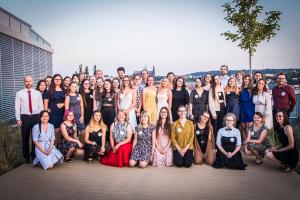
On 16 July, the seventh year of the Summer IT School for high school students was officially closed on the 10th floor of the CTU Rectorate. During the evening, teams composed of participants presented their projects they had worked on during the day-long hackathon. While working on the projects, the girls were supposed to capitalize on everything they had learned and learned from the IT world during the week at CTU.
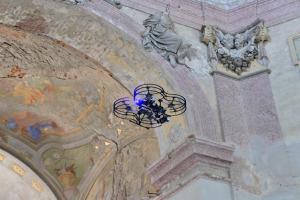
The Coronation Hall of the castle in Kroměříž, the churches of St. Moritz in Olomouc, St. Nicholas in Prague and the grotto in Gorzanów, Poland, are just some of the monuments whose interiors have been explored by unmanned helicopters with on-board AI, or robotic drones, over the past four years. The Multirobotic Systems Group from the Faculty of Electrical Engineering of the Czech Technical University in Prague (FEL) led by doc. Martin Saska made considerable progress in their development: the current ones can move autonomously in the interiors of buildings along a predetermined safe route while reacting to unexpected obstacles. This is a globally unique project called Dronument, where the technology records precious historical assets and assists conservationists in their restoration.

The student carsharing Uniqway, which has been operating all along despite the anti-epidemic restrictions in place, now brings a number of new features and innovations. The newly launched website www.studentskeleto.cz offers interesting and regularly updated tips for trips, not only in the Czech Republic, supplemented with lots of useful information. In addition, it is once again possible to go abroad with Uniqway cars. With the end of the semester, the service is also open to university graduates, who can continue their Uniqway journeys smoothly.

The Faculty of Nuclear Sciences and Physical Engineering participated in the preparation of a week-long training course of the Ministry of Industry and Commerce of the Czech Republic (MIC) called Mosaic. The course is intended primarily for employees of state and local government authorities who are involved in the preparation for the construction of a new nuclear power plant in the Czech Republic.
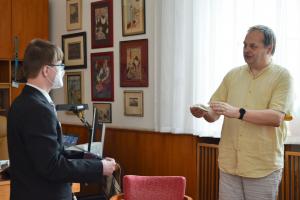
Roberta Bimbová from the Department of Physical Electronics, Ondřej Kubů from the Department of Physics and Tomáš Jakubec from the Department of Mathematics received the Dean's Prize of the Faculty of Nuclear Sciences and Physical Engineering (FJFI) 2021 for the best diploma thesis.

Pierre Donat-Bouillud, Ph.D., a researcher at the Programming Research Laboratory of the Faculty of Information Technology, has submitted his project to the Horizon 2020 call for proposals and received the international Seal of Excellence award. The main objective of the call was to support human resources, mobility, further training and professional growth of researchers in the European Research Area through international and inter-sectoral mobility.
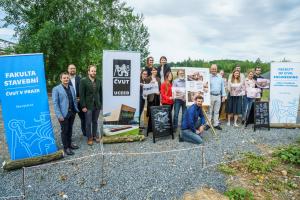
For the second time, the student team is participating in the Solar Decathlon Europe 21 competition, which focuses on sustainable, efficient and innovative construction using renewable energy sources. The students entered the event with a project called FIRSTlife. They are responding to an assignment focusing on the problem of limited capacity and quality of urban housing, including the urban context. The project, led by the Faculty of Civil Engineering and supported by the University's Energy Efficient Buildings Centre, elaborates on the theme of "Refurbishment and Extension" and applies it in the context of increasing the capacity and quality of student housing. The student team chose the Větrník student halls of residence in Prague as a model building. The project received the patronage of the Rector of CTU doc. Vojtěch Petráček, the Ministry of Foreign Affairs of the Czech Republic and the Czech-German Chamber of Commerce and Industry.
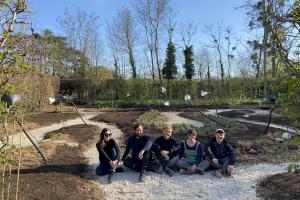
The students of the Landscape Architecture programme at the Faculty of Architecture, Háta Enochová, Petr Stojaník, Marek Kratochvíl and Jan Trpkoš, are behind the design and implementation of the garden design, under the guidance of their tutor and experienced landscape architect Vladimír Sitta.

Global aerospace company Bell Textron Inc., a subsidiary of Textron Inc. (NYSE: TXT), has signed an agreement with the Faculty of Electrical Engineering (FEL) of the Czech Technical University in Prague to collaborate on an innovative research project. The Intelligent Mobility Research Team of the FEL CTU Centre for Artificial Intelligence will model consumer decision-making when choosing transportation options. The findings will help Bell to develop a clearer picture of how it could integrate its state-of-the-art solutions into existing public transport infrastructure.
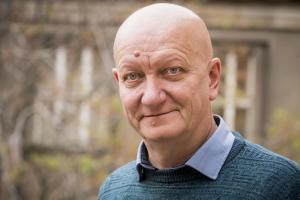
Five leading Czech and Moravian universities have joined together in 2019 to better promote their interests and break through among the best in Europe under the brand of a single elite association. The Association of Research Universities (ARU) was founded by Charles University, Masaryk University, Palacký University in Olomouc, Czech Technical University in Prague and the University of Chemical Technology in Prague, which ranked in the top five among Czech universities in the current international QS World University Rankings. As of 1 July 2021, Assoc. Vojtěch Petráček, Rector of the CTU in Prague, succeeded Prof. Tomáš Zima, Rector of Charles University, as ARU Chairman.